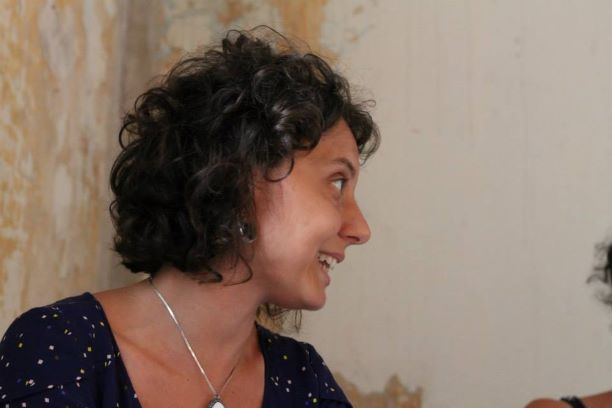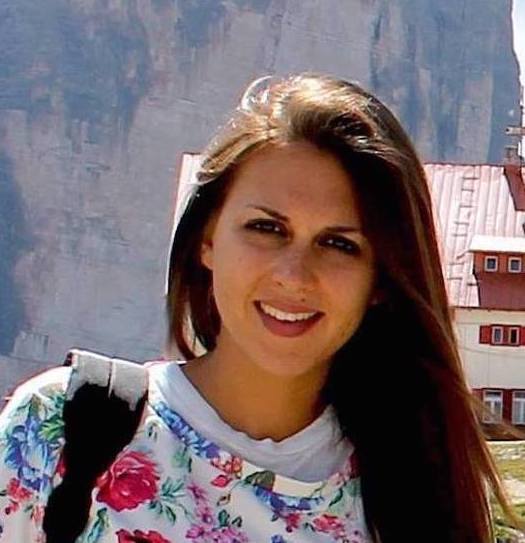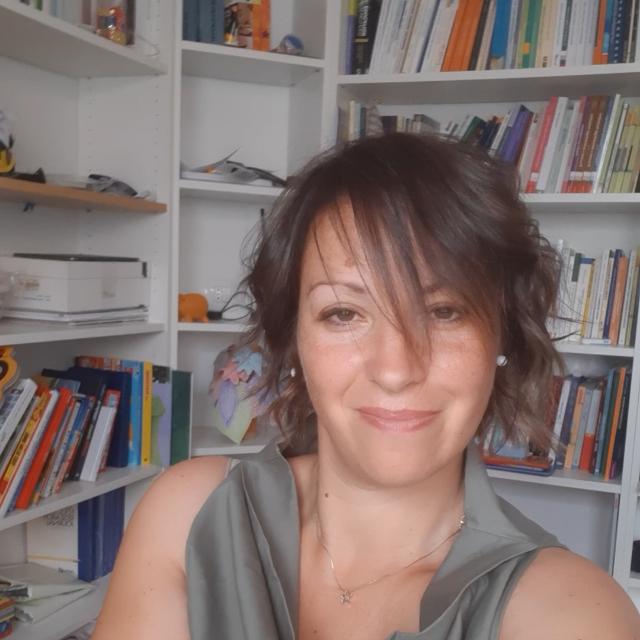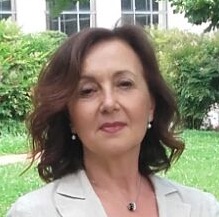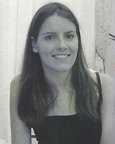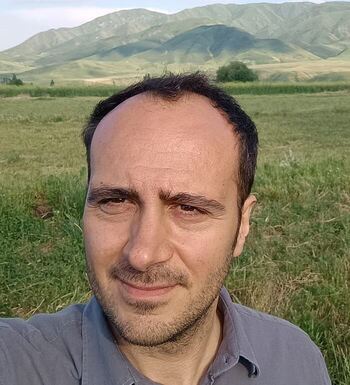Studying at the University of Verona
Here you can find information on the organisational aspects of the Programme, lecture timetables, learning activities and useful contact details for your time at the University, from enrolment to graduation.
Academic calendar
The academic calendar shows the deadlines and scheduled events that are relevant to students, teaching and technical-administrative staff of the University. Public holidays and University closures are also indicated. The academic year normally begins on 1 October each year and ends on 30 September of the following year.
Course calendar
The Academic Calendar sets out the degree programme lecture and exam timetables, as well as the relevant university closure dates..
| Period | From | To |
|---|---|---|
| Sem. 1A | Sep 27, 2021 | Nov 6, 2021 |
| Sem. 1B | Nov 15, 2021 | Jan 12, 2022 |
| Sem. 2A | Feb 14, 2022 | Mar 26, 2022 |
| Sem. 2B | Apr 4, 2022 | Jun 4, 2022 |
| Session | From | To |
|---|---|---|
| Sessione Invernale | Jan 10, 2022 | Feb 12, 2022 |
| Sessione estiva | Jun 6, 2022 | Jul 23, 2022 |
| Sessione autunnale | Aug 29, 2022 | Sep 24, 2022 |
| Session | From | To |
|---|---|---|
| Sessione estiva | Jul 11, 2022 | Jul 16, 2022 |
| Sessione autunnale | Nov 7, 2022 | Nov 12, 2022 |
| Period | From | To |
|---|---|---|
| FESTIVITA' OGNISSANTI | Nov 1, 2021 | Nov 1, 2021 |
| Vacanze di Natale | Dec 25, 2021 | Jan 6, 2022 |
| VACANZE DI PASQUA | Apr 15, 2022 | Apr 19, 2022 |
| Festa della Liberazione | Apr 25, 2022 | Apr 25, 2022 |
| FESTA DEL LAVORO | May 1, 2022 | May 1, 2022 |
| Festività Santo Patrono di Verona | May 21, 2022 | May 21, 2022 |
Exam calendar
Exam dates and rounds are managed by the relevant Humanistic Studies Teaching and Student Services Unit.
To view all the exam sessions available, please use the Exam dashboard on ESSE3.
If you forgot your login details or have problems logging in, please contact the relevant IT HelpDesk, or check the login details recovery web page.
Should you have any doubts or questions, please check the Enrollment FAQs
Academic staff
 marialivia.alga@univr.it
marialivia.alga@univr.it
 tamara.bastianello@univr.it
tamara.bastianello@univr.it
 simona.carta@univr.it
simona.carta@univr.it
 marialuisa.costantino@univr.it
marialuisa.costantino@univr.it
 donato.desilvestri@univr.it
donato.desilvestri@univr.it
Ganzerla Luca Giovanni Michelangelo
 lucagiovanni.ganzerla@univr.it
lucagiovanni.ganzerla@univr.it
 licia.landi@univr.it
licia.landi@univr.it

Migliorati Lorenzo
 lorenzo.migliorati@univr.it
lorenzo.migliorati@univr.it
 045802 8135
045802 8135
 maria.mori@univr.it
maria.mori@univr.it
 ilaria.mussini@univr.it
ilaria.mussini@univr.it
 alessandro.ongaro@univr.it
alessandro.ongaro@univr.it
 valentina.persici@univr.it
valentina.persici@univr.it
 sara.riggio@gmail.com
sara.riggio@gmail.com
 rosanna.vit@univr.it
rosanna.vit@univr.it
 barbara.zoccatelli@unitn.it
barbara.zoccatelli@unitn.it
Study Plan
The Study Plan includes all modules, teaching and learning activities that each student will need to undertake during their time at the University.
Please select your Study Plan based on your enrollment year.
1° Year
| Modules | Credits | TAF | SSD |
|---|
2° Year activated in the A.Y. 2022/2023
| Modules | Credits | TAF | SSD |
|---|
3° Year activated in the A.Y. 2023/2024
| Modules | Credits | TAF | SSD |
|---|
| Modules | Credits | TAF | SSD |
|---|
| Modules | Credits | TAF | SSD |
|---|
| Modules | Credits | TAF | SSD |
|---|
| Modules | Credits | TAF | SSD |
|---|
Legend | Type of training activity (TTA)
TAF (Type of Educational Activity) All courses and activities are classified into different types of educational activities, indicated by a letter.
Type D and Type F activities
I 12 crediti liberi a scelta dello studente (ambito “D”) hanno lo scopo di offrire allo studente la possibilità di personalizzare il proprio percorso formativo permettendo di approfondire uno o più argomenti di particolare interesse legati al proprio percorso accademico.
Per garantire questo fine, si invitano gli studenti a rispettare le seguenti indicazioni per il completamento di tale ambito:
- almeno un’attività formativa erogata come esame universitario (con relativo voto in trentesimi) - è possibile scegliere fra i vari insegnamenti del proprio CdS non sostenuti in precedenza, anche quelli dell'altro curriculum, fra i vari insegnamenti degli altri CdS di I° livello afferenti al Dipartimento di Scienze Umane ed anche fra i vari insegnamenti dei CdS di I° livello ad accesso libero erogati dall'Ateneo di Verona;
- massimo 6 cfu relativi a competenze linguistiche (oltre a quelli previsti dal PdS);
- massimo 6 cfu relativi a competenze informatiche (oltre a quelli previsti dal PdS);
- massimo 4 cfu di tirocinio, (oltre a quelli previsti dal PdS);
- massimo 6 cfu di attività laboratoriale/esercitazioni (compresi quelli previsti nei PdS per l’ambito) di regola viene riconosciuto 1 cfu ogni 25 ore di attività;
- massimo 6 cfu di attività seminariale/convegni/cicli di incontri/formative in genere (sia accreditata dal Dipartimento di Scienze Umane che extrauniversitaria) – di regola viene riconosciuto 1 cfu ogni 8 ore di partecipazione e/o 2 giornate salvo diversamente deliberato;
- non vengono valutate attività svolte in Erasmus non inserite nei Learning Agreement.
COMPETENZE TRASVERSALI
Scopri i percorsi formativi promossi dal Teaching and learning centre dell'Ateneo, destinati agli studenti iscritti ai corsi di laurea, volti alla promozione delle competenze trasversali:
https://talc.univr.it/it/competenze-trasversali
| years | Modules | TAF | Teacher |
|---|---|---|---|
| 1° 2° 3° | What paradigms beyond the pandemic? | D |
Paola Dal Toso
(Coordinator)
|
| 1° 2° 3° | The ethics and aesthetics of the image | D |
Gianluca Solla
(Coordinator)
|
| years | Modules | TAF | Teacher |
|---|---|---|---|
| 1° 2° 3° | What paradigms beyond the pandemic? | D |
Paola Dal Toso
(Coordinator)
|
| 1° 2° 3° | Laboratorio “Calendario di Memoria Civile – Giornata della Memoria” | D |
Olivia Guaraldo
(Coordinator)
|
| years | Modules | TAF | Teacher |
|---|---|---|---|
| 1° 2° 3° | Introduction to robotics for humanities students | D |
Paolo Fiorini
(Coordinator)
|
| years | Modules | TAF | Teacher |
|---|---|---|---|
| 1° 2° 3° | Restorative Justice | D |
Cristina Lonardi
(Coordinator)
|
| 1° 2° 3° | Group Psychology and the Analysis of the Ego, a hundred years later: social bond and new forms of subjectivation. | D |
Matteo Bonazzi
(Coordinator)
|
| 1° 2° 3° | Gnoseology and Metaphysics Workshop | D |
Davide Poggi
(Coordinator)
|
| years | Modules | TAF | Teacher |
|---|---|---|---|
| 1° 2° 3° | Partecipated justice and reforms. The settlement of conflicts with people and for people | D |
Cristina Lonardi
(Coordinator)
|
| 1° 2° 3° | Gnoseology and Metaphysics Workshop | D |
Davide Poggi
(Coordinator)
|
Sociology and analysis of social dynamics (2021/2022)
Teaching code
4S02401
Teacher
Coordinator
Credits
9
Language
Italian
Scientific Disciplinary Sector (SSD)
SPS/07 - GENERAL SOCIOLOGY
Period
Sem. 1A, Sem. 1B
Learning outcomes
Knowledge and understanding 1. To know and to understand the main concepts of sociology, paying special attention to strategies and main subjects of sociological research and referring particularly to Italian society features. 2. To present a systematic introduction to techniques of structural analysis, known also well as techniques of social network analysis, first presenting their theoretical roots and secondly dealing with the relational concept of social phenomena. 3. To examine some subjects particularly relevant in education. These concepts will be presented through the analysis of some empirical researches that show to the students some operational strategies for the practical use of the social network analysis.
Applying knowledge and understanding 1. To define the most important concepts and issues for sociology, with methodological proficiency, command of terminology and with special reference to those regarding the fields of action of the educational services. 2. To use the acquired theoretical approaches to read social phenomena and be able to effectively define the most important characteristics of relational contexts, including social networks, and then to use the acquired abilities to make autonomous use of data regarding social contexts and analyse the characteristics of social networks, in particular in the educational field. 3. To use the acquired abilities, in terms of strategies for analysis and obtaining information, to confidently study the social aspect of educational phenomena.
Program
To achieve the learning outcomes, the course will take shape over the following three-part syllabus:
First part:
1. Introduction to sociology.
2. Culture.
3. Social structure.
4. Socialization.
5. Social interaction.
6. Organizations.
7. Deviance and social control.
8. Community and urban life.
9. Inequality, stratification and social classes.
10. Ethnic inequality.
11. Gender and inequality.
12. Age and inequality.
13. Family.
14. Education.
15. Religion.
16. Economy and society.
17. Political system.
18. Population dynamics.
19. Collective behaviour and social movements.
20. Social and cultural change.
Second part:
1. Definition and utility of social network analysis.
2. Theoretical roots of social network analysis.
3. Social relation and its operationalization.
4. Methods for the data collection and organization.
5. Graphic representation of data.
6. Graph Theory.
7. Matrix representation of data.
8. Centrality and centralization.
9. Methods and techniques for partition of graphs.
10. Methods for reduction of graphs.
11. Positions, roles and structural equivalence.
12. Limits and prospects of development for social network analysis.
Third part:
1. The relational paradigms of social research: relational sociology, and social network analysis.
2. The joint use of the research methodologies.
3. The relational analysis of amoral familism.
4. The relational analysis of school social capital.
The syllabus will be presented analytically in lectures. All topics in the syllabus can be found in the following reference texts:
1) For the first part of the syllabus: N.J. Smelser, Manuale di sociologia, Bologna, il Mulino, 2011 (all).
2) For the second part of the syllabus: A.M. Chiesi, L’analisi dei reticoli, Milano, FrancoAngeli, 1999 (except the Appendix).
3) For the third part of the syllabus: L. Tronca, Sociologia relazionale e social network analysis. Analisi delle strutture sociali, Milano, FrancoAngeli, 2013 (all).
Bibliography
Examination Methods
The examination aims to check the skills acquired by students. The content of the syllabus will be assessed. The examination consists of a written test with thirty-one multiple-choice questions potentially concerning any of the syllabus content. A mark will be given out of thirty. The examination is conducted in the same way for attending and non-attending students.
Career prospects
Module/Programme news
News for students
There you will find information, resources and services useful during your time at the University (Student’s exam record, your study plan on ESSE3, Distance Learning courses, university email account, office forms, administrative procedures, etc.). You can log into MyUnivr with your GIA login details: only in this way will you be able to receive notification of all the notices from your teachers and your secretariat via email and also via the Univr app.
Graduation
Documents
| Title | Info File |
|---|---|
|
|
pdf, it, 109 KB, 12/07/24 |
|
|
pdf, it, 112 KB, 14/05/24 |
List of thesis proposals
| theses proposals | Research area |
|---|---|
| Ambienti e contesti di lavoro con minori | Various topics |
| Analisi dei personal network di sostegno | Various topics |
| comunicazioni relative alla tesi | Various topics |
| Il teatro come contesto educativo | Various topics |
| I processi di globalizzazione culturale nella società contemporanea | Various topics |
| La social network analysis applicata allo studio dei contesti educativi | Various topics |
| L'educatore ed i progetti europei | Various topics |
| L'impegno associativo in ambito educativo | Various topics |
| Politiche sociali e contesti educativi | Various topics |
| Progetti di collaborazione con le istituzioni scolastiche | Various topics |
| PROPOSTE TESI AMBITO GEOGRAFICO | Various topics |
| Scuola e capitale sociale | Various topics |
Linguistic training CLA
Gestione carriere
Student mentoring
Practical information for students
Documents
| Title | Info File |
|---|---|
|
|
pdf, it, 325 KB, 16/07/24 |
|
|
pdf, it, 212 KB, 02/05/23 |
|
|
pdf, it, 131 KB, 02/05/23 |
Stage e Tirocini
Le ulteriori attività formative (crediti F) sono interamente coperte dall’attività di tirocinio “indiretto” (1 cfu) da svolgersi nel secondo anno e di tirocinio “diretto” (14 cfu) da svolgersi presso enti convenzionati per un numero complessivo di 15 cfu (375 ore). Chi è iscritta/o al curriculum servizi per l’infanzia è tenuta/o a svolgere il tirocinio presso nidi e servizi per la prima infanzia per almeno il 50% delle ore.
Il tirocinio professionalizzante (375 ore, pari a 15 cfu), è obbligatorio sia nella sua forma diretta che indiretta.
Il tirocinio indiretto, della durata di 25 ore a frequenza obbligatoria al 75%, si svolge in Università per 20 ore e in forma di lavoro individuale per 5 ore e consiste in un accompagnamento iniziale delle/degli studenti da parte dei tutor attraverso un percorso formativo dotandoli di conoscenze e strumenti adeguati a osservare, comprendere e rielaborare criticamente l’esperienza di tirocinio nei servizi educativi e ad affrontare il tirocinio negli enti con metodo e consapevolezza. Il percorso, da attuare in gruppi da 20-25 persone sotto la supervisione di un tutor, risponde alle esigenze costantemente espresse sia dalle/dagli studenti stessi sia dalle parti sociali che dai referenti degli enti convenzionati.
Il tirocinio diretto si propone di raggiungere i seguenti obiettivi:
- fare esperienza diretta di attività professionali, che richiedono un livello di preparazione al lavoro educativo;
- approfondire in particolare il rapporto tra preparazione teorica, acquisita mediante lo studio, ed esperienza pratica, tra mondo del sapere e della cultura e mondo del lavoro e delle professioni;
Al termine del tirocinio diretto lo studente deve presentare una relazione scritta, nella modalità concordata con il tutor accademico.
Nuove Linee Guida per il tirocinio di Scienze dell'educazione.
- Tutte le informazioni in merito agli stage per futuri studenti sono disponibili alla pagina Stage e tirocini.
- Tutte le informazioni in merito agli stage per studenti iscritti sono pubblicate in MyUnivr - come fare per - stage e tirocini.
- Tutte le informazioni in merito agli stage per le aziende sono disponili alla pagina Stage e tirocini per azienze.
Documents
| Title | Info File |
|---|---|
|
|
pdf, it, 302 KB, 16/07/21 |
